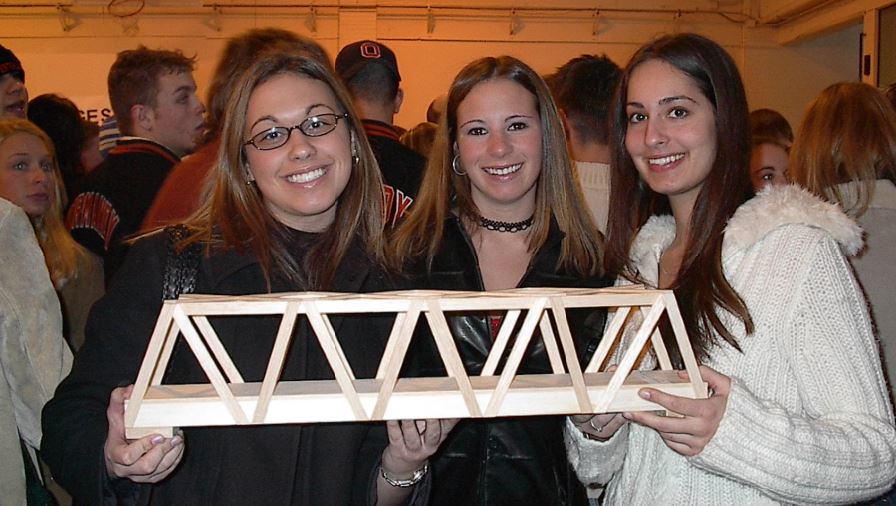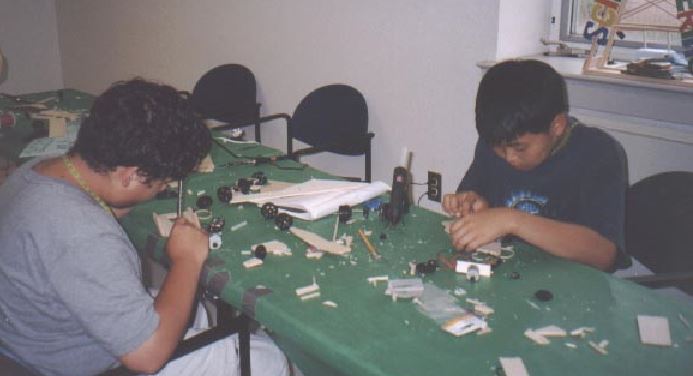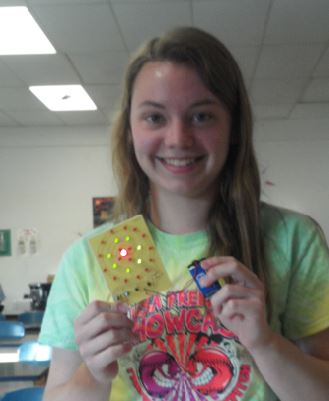
Sparks in the Schoolyard: What We Lost When Shop Class Disappeared
There are two ways to look at the approach my parents took to academics.
“We trust your judgement” or, “so long as the school isn’t calling with problems, everything is fine.”
Either way, I could choose my own classes and graduation requirements weren’t as stringent. I took every shop class that North Olmsted High School offered, and avoided academic classes.
The MCU likes the multiverse, but for everyone else, it’s pointless to think about what life would be like now if different choices were made while growing up. Everything worked out better than expected. Looking back, it is fair to say that taking all those shop classes did more for me than getting a Master’s degree in Mechanical Engineering.
At some point in junior high, I had to choose a “shop.” …the ones most boys wanted were the two slightly dangerous ones — Electronics and Electricity or Metalwork…The proximity of the two classes meant a constant back-and-forth — a lot of joking, teasing, and the occasional informal competition to see who could cause more noise or sparks.
High school was awkward for me, but everyone else had it easy because they knew what to do. I learned later that most people feel that way.
Shop class had a simple routine. Teacher talks for a few minute, work on your project for a half-hour, then clean up when the teacher blows the whistle. That’s it.
High school has cliques, but that doesn’t matter in shop. Work on your project, talk to the people in the vicinity or not. I learned that it’s much easier to get to know people when everyone has something to do. In Electricity, the popular prank was to heat up a resistor and toss it to someone. Blowing capacitors was also good fun.
We were 13 and 14-year-old boys using tools that could burn us, shock us, and — if we ignored the teacher’s warnings — put us in the hospital. The boys next door were welding in full gear, cutting and filing metal, and doing things that came with a real risk of tetanus. I can’t recall a single accident bad enough to stop a class, though there were burns, scrapes, and the occasional singed eyebrow.
There was no discussion about “toxic masculinity” — just a roomful of boys learning to master tools and danger.
The table saw was the scariest tool. It has a wicked exposed blade that spins so fast, it makes a relentless hum. We soon learned which kids were maniacs. School has a lot of rules. Students learn they can break them as long as they don’t get caught, and if they do, can usually weasel out of any serious consequences. Shop isn’t like that. There weren’t rules, as much as an understanding that what you do has consequences. Ignore the table saw lesson, and a piece of wood binds up between the blade and fence. It doesn’t squeal or smoke, but gets fired back at you like a ball coming out of a pitching machine. Physics doesn’t care that you are a good person or what you meant to do.
Kids were injured, but you learned to soldier on without making a big production out of it. I lost a little bit of the tip of my finger, and just wrapped it up. In Welding class, my jeans caught on fire. No big deal.
It sounds dangerous, and it is. Keep in mind that most of these students have a driver’s license. They can do much more damage to themselves and others, while driving. People don’t like to think about that.
When I taught Science and Engineering at the academic summer camp run by Johns Hopkins, 11 year-old students used glue guns, utility knives and soldering pencils.

The students were all geniuses, but that doesn’t mean that they didn’t do retarded things all the time. They would frequently get cut or burned. That might have been the most important lesson they learned. They can use tools, need to be careful, and if they get a minor injury, it’s no big deal.
They weren’t officially boys-only classes, but the self-selection was complete. The girls chose other electives. This was our domain.
When I was in high school, only one girl was in my shop class. She told me that the office put her in Advanced Woodworking by mistake. Her parents thought that was funny, so wouldn’t sign the drop slip to get her out. She was a good sport, but it wasn’t an interest of hers. Her project was making a wooden sculpture of a fox. It was a wood chisel and mallet job, and didn’t use any power tools.
More girls are in shop classes now. That isn’t a good thing. It isn’t a bad thing either. Girls like to create, boys like to build. Girls choose other electives. When I taught Physics at Normandy, as a fun side project, my students entered the Balsa Wood Bridge Building Competition at Case Western. Eventually, we dominated the competition.
Student enrollment in Physics is about 50/50. A third of the bridge builders were girls. They enjoyed it because it was field trip, something to do, and didn’t require extensive power tool use.
Even though I eventually built my career in the arts — film and animation, not wiring and welding — I still carry what I learned in those shops. The skills themselves were useful, but more important was the mindset: working with my hands, thinking through problems step by step, trusting that I could figure something out.
We live in a consumer society. That isn’t bad because we all have a bunch of stuff. The negative aspect of a consumer society is that people accept what is available, and are less likely to create and build a solution that ideally suits them.
I am motivated to do a good job, and can learn the skills necessary to create what I need. The alternative is to pay someone who isn’t motivated to do a good job, but has the skills to produce it. Or, buy something that is 80% of what I want.
It also taught me the value of that kind of work — the satisfaction of making or fixing something tangible, and the respect due to people who do it every day. That confidence crosses disciplines.
One of my best ideas in education was to have AP students build an electronics project.

The AP test is administered in early May. After the test, seniors have a couple of weeks of school left. If students do not have assignments, they turn feral. Even the smart ones. My class was very rigorous and focused on the AP test. Teaching them other physics topics after the AP test felt like breaking the deal.
These are academically advanced students. Most had ACT scores in the 30’s. Few ever had room in their schedules for shop or practical electives.
The electronics projects were kits that cost under ten bucks. Some of the electrical components, like resistors and capacitors, had been covered in the curriculum in a theoretic manner. Students had to be taught to solder, but primarily they just needed to precisely follow the kit instructions.
My students were very nice people, but they were academically advanced. They would never say this, but down deep, they believed that since they were smart, they could do anything that a vocational kid could do, plus Calculus.
One objective of the project was for students to understand that skills aren’t like that. Being able to read and analyze a poem doesn’t mean that the student can comprehend the instructions to ascertain the proper polarity of a diode. People working in skilled trades can do things that they don’t know how to do.
Good students are good at being students. They can suck up, be cordial and manipulate. The electronics kit doesn’t care. Another objective was for students to understand that having an excuse or explanation for something not getting done properly, is not the same as getting a thing done right. At the end, it either works or it doesn’t.
The project worked well because students had other AP tests, so attendance would be uneven for those two weeks. I taught them to solder, and could re-teach that in small groups as necessary.
The end of senior year is stressful. Having a small, individual project to work on is relaxing. It’s almost a kind of meditation. The student chose their project, so if it worked, they had a dumb little gizmo for their college dorm room. By the end of the project, students were either humbled or proud.
This project was immensely beneficial until my principal’s kid was in my class. The principal wasn’t a man with any practical skills, just palace intrigue kind of stuff that makes a person rise in an organization until everyone has lost respect for him.
The principal had a couple of district policy reasons why the project couldn’t persist in it’s current form. He didn’t object to it personally, he just couldn’t allow it and had no suggestions for what could replace that activity. People like him sabotage public education.
Since it isn’t my story to tell, I won’t get into the endless obstructions faced by our shop teachers. I will say that at Normandy and North Royalton, there were shop classes available for students and the instructors were good men with impressive skills.
Leave a Reply